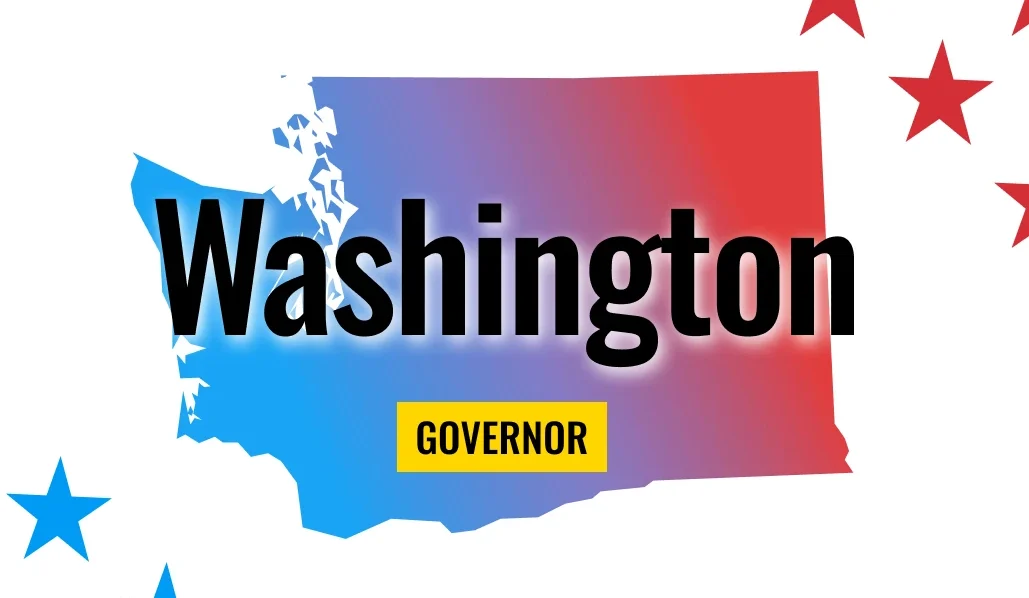Bob Ferguson is Washington state’s newly elected governor, leading his competitor, Dave Reichert by almost 400,000 votes. The Seattle-born former Washington Attorney General has been in the public eye for some time, but may not be as ubiquitous as his contemporaries–at least for now. So who is Ferguson?
Back in 2012, while the Obama administration worked to federally recognize and make legal same-sex marriage, one court case stood out in the press as a perfectly timed example of how the LGBTQ+ community were living and feeling at the time.

Karen Ducey/Getty Images
Washington state governor-elect Bob Ferguson.
Arlene’s Flowers, a shop in Benton County, Wash., was brought into a tough spotlight after refusing to sell wedding arrangements to one of their regular customers simply because the shop owner’s religious views went against the couple’s sexual orientation.
The couple filed a complaint, and the case went back and forth between Supreme Courts. Lawyers argued for the couple, fighting against the discrimination on the basis of sexual orientation.
One of those lawyers was Ferguson, 12 years before he would become Washington’s freshly-elected governor.
This week’s election prompted Washingtonians to choose a new governor for the first time in 12 years following the retirement of Jay Inslee. Ferguson will take office in January, 2025, and lead the Washington State government for the next four years, along with re-elected Lieutenant Governor, Denny Heck, who won the last lieutenant gubernatorial election.
The first plan outlined in Ferguson’s platform is his ideas of public safety in Washington. Earlier this year, the FBI ranked Washington as the second most dangerous state in the country. The Governor-elect hopes to increase the size of law enforcement, as Washington also ranks lowest in officers per capita in the nation.
Trust between community and law enforcement has been strained for years. Many times a call to 911 would only result in an average hour wait for a response, sometimes not at all.
Ferguson plans to repair this trust by building upon “his work within the Criminal Justice Training Commission to expand and improve training for community-based policing, expanding co-response and non-armed responders rooted in de-escalation and behavioral health training, and improve data collection and reporting to improve public trust.”

In previous elected positions, Ferguson fought to open empty motels for act as shelters for homeless and refugees in the area, he’s argued three successful suits against corporate landlords, and aided families fighting foreclosure.
He’s taken an “All of the Above” approach to addressing the housing crisis in the state, saying it’s not just more houses needing to be built, but affordability and protections for low-income families, seniors, veterans, and disabled persons.
He hopes improved infrastructure to aid homelessness, such as mental health and recovery resources, expanding treatment options, will open pathways to home ownership.
Ferguson has been in the public service sector for his entire career. Starting as a law clerk in Spokane, he ended up in Seattle at a Washington Special Assistant Attorney General law firm, which means he worked closely with the Attorney General’s office.
He was first elected to King County Council in 2003, winning nearly every election following. Winning the Attorney General election in 2013, Ferguson set forth fighting big fights for Washington citizens.
As Attorney General, Ferguson was unrepentant in his opposition to Donald Trump. In 2017, Trump attempted Executive Order 13769, colloquially known as Trump’s “Muslim Ban,” in an effort to block immigration from Muslim-majority countries and turn refugees away.
Ferguson, along with previous governor Inslee, filed the suit within three days of the order, presenting letters from citizens and companies about the religious discrimination that his executive order perpetuated. The travel ban suit was Ferguson’s first legal pursuit, and it successfully blocked the ban, allowing refugees from war-torn countries to seek asylum in the US.
The track record of Washington’s new governor continues this trend of standing against President-elect Trump’s more draconian policies, stopping the repeal of Obama-era climate protections, protecting the Endangered Species Act, keeping DACA in place, as well as creating the Consumer Protection Division.
Ferguson’s career as governor is just starting, and time will tell how his activism and political track record translates to this higher echelon of democratic policy, but looking back, he has always been behind the scenes, working for the same citizens he always has.

